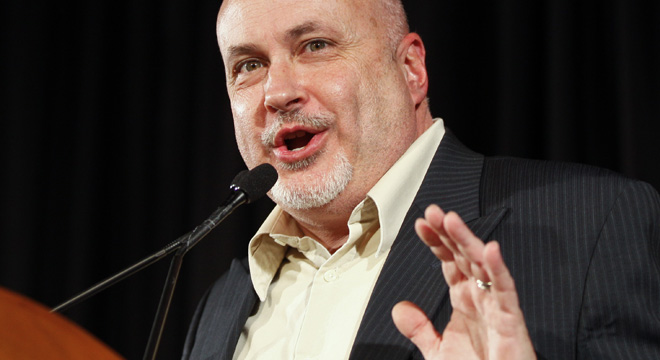A pair of Democratic congressmen is pushing an amendment that would place an affirmative right to vote in the U.S. Constitution. According to Rep. Mark Pocan (D-WI), who is sponsoring the legislation along with Rep. Keith Ellison (D-MN), the amendment would protect voters from what he described as a “systematic” push to “restrict voting access” through voter ID laws, shorter early voting deadlines, and other measures that are being proposed in many states.
“Most people believe that there already is something in the Constitution that gives people the right to vote, but unfortunately … there is no affirmative right to vote in the Constitution. We have a number of amendments that protect against discrimination in voting, but we don’t have an affirmative right,” Pocan told TPM last week. “Especially in an era … you know, in the last decade especially we’ve just seen a number of these measures to restrict access to voting rights in so many states. … There’s just so many of these that are out there, that it shows the real need that we have.”
The brief amendment would stipulate that “every citizen of the United States, who is of legal voting age, shall have the fundamental right to vote in any public election held in the jurisdiction in which the citizen resides.” It would also give Congress “the power to enforce and implement this article by appropriate legislation.”
After investigating the issue, Pocan said he and Ellison decided this type of amendment was the best way to combat measures to restrict voting access.
“Essentially, what it would do is it would put the burden on any of these states that try to make laws that are more restrictive that they would have to prove that they’re not disenfranchising a voter. Rather than, currently, where a voter has to prove they’ve somehow been wronged by a state measure,” said Pocan.
Pocan laid the blame for this push to restrict voting rights on conservatives he described as interested in influencing elections.
“I think there are a number of folks, most likely on the right, who are looking at when we have larger turnout elections, generally, I think they realize that they don’t have much control over the election,” said Pocan. “Trying to control who goes to vote is just another strategy in trying to have an electoral outcome.”
Pocan said he was inspired to investigate this type of legislation after the NAACP’s legal challenge to a photo ID measure supported by Wisconsin’s Republican governor, Scott Walker, succeeded because of a guarantee of the right to vote in the state’s constitution. He linked up with Ellison who had taken over a push to establish an affirmative right to vote on the federal level from former Rep. Jesse Jackson Jr. (D-IL).
Ellison and Pocan announced their legislation May 13. Pocan said there’s currently no counterpart in the Senate.
There will be a long, hard road to getting the amendment approved. In the more than two centuries of American government, only 27 amendments to the Constitution have been approved though thousands have been discussed.
If an amendment gets the support of two-thirds of both the House and Senate, it is then sent to the states for ratification. Three-quarters of the state legislatures must approve the amendment for it be ratified. An amendment to the Constitution can also be approved at a Constitutional Convention called by two-thirds of state governments where it must be approved by three quarters of the states. None of the successful amendments were approved through Constitutional Conventions.
Pocan didn’t say whether he believes it will pass in the House of Representatives describing it as “fairly new.”
“I think we need to start the conversation about this and then that’s hopefully what we’re doing,” Pocan said. “There’s a couple major Supreme Court decisions we’re expecting this summer around voting rights, but clearly it’s an organized attempt state-by-state to pass these more restrictive laws. …. Even though Wisconsin has that protection a lot of other states don’t, so we really need to have it in the U.S. Constitution.”
Pocan said he and Ellison are “just in the process of gaining co-sponsors” for their legislation. Though he identified forces on the right as being behind an effort to restrict voting rights, he hopes to get bipartisan support for the amendment.
“I don’t think this is a Democratic issue or a Republican issue. I mean I just think this is a fairness issue and it’s an issue about our democracy,” Pocan said. “I hope we could get anyone to look at this and see that this is a common sense approach.”






